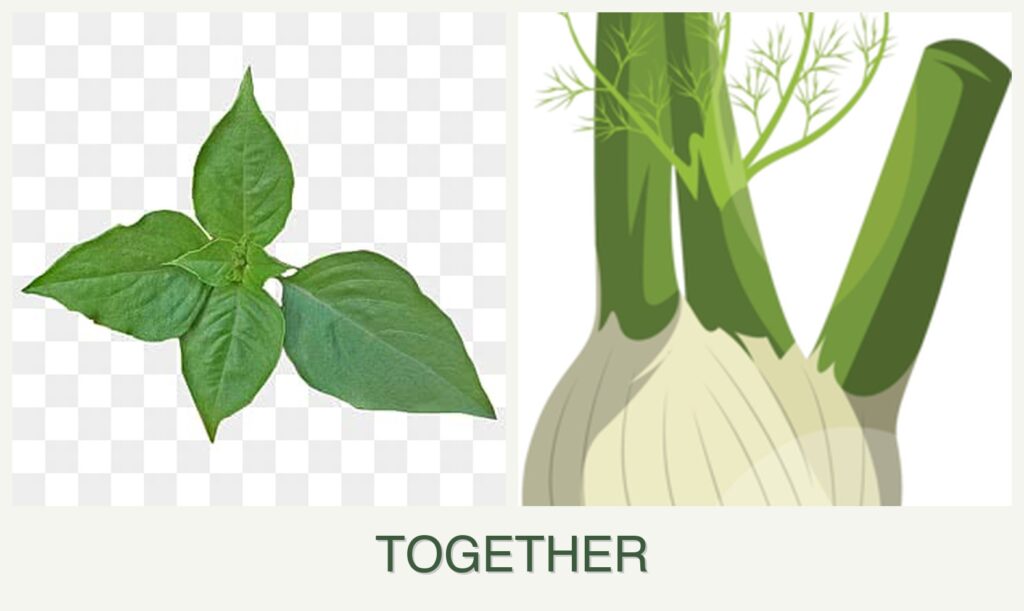
Can you plant basil and fennel together?
Can You Plant Basil and Fennel Together?
Companion planting is a gardening technique that involves growing different plants together for mutual benefits, such as pest control or improved growth. However, not all plants are compatible. In this article, we’ll explore whether basil and fennel can be planted together and what you need to know to make the most of your herb garden.
Compatibility Analysis
The short answer is NO, basil and fennel should not be planted together. Fennel is known for being a poor companion plant because it can inhibit the growth of many other plants, including basil. This is due to allelopathy, where fennel releases chemical compounds that can negatively affect other plants. Basil, on the other hand, thrives with companions that enhance its growth and flavor, but fennel is not one of them. Key factors such as growth requirements, pest control, nutrient needs, and spacing highlight their incompatibility.
Growing Requirements Comparison Table
| Requirement | Basil | Fennel |
|---|---|---|
| Sunlight | Full sun | Full sun |
| Water | Moderate | Moderate |
| Soil pH | 6.0-7.5 | 5.5-6.8 |
| Soil Type | Well-drained | Well-drained |
| Hardiness Zones | 10-11 | 4-9 |
| Spacing | 12-18 inches | 12-18 inches |
| Growth Habit | 1-2 feet tall | 2-4 feet tall |
Benefits of Planting Together
While basil and fennel don’t make good companions, understanding the benefits of companion planting can help in choosing better partners for each. For instance, basil can enhance the flavor and growth of tomatoes, while fennel can attract beneficial insects like ladybugs. Pairing plants strategically can lead to improved pest control, space efficiency, and soil health.
Potential Challenges
Planting basil and fennel together can lead to several challenges:
- Resource Competition: Fennel may outcompete basil for nutrients and sunlight.
- Watering Needs: Although both require moderate watering, fennel’s deep roots can interfere with basil’s shallower roots.
- Disease Susceptibility: Fennel’s allelopathic properties can stress basil, making it more susceptible to diseases.
- Harvesting Considerations: The tall growth of fennel can overshadow basil, complicating harvesting.
To overcome these issues, it’s best to plant them separately or choose more compatible companions for each.
Planting Tips & Best Practices
- Optimal Spacing: Maintain at least 18 inches between basil and other plants, and similar spacing for fennel.
- When to Plant: Plant basil after the last frost in spring and fennel in early spring.
- Container vs. Garden Bed: Consider planting fennel in a separate container to avoid interference.
- Soil Preparation: Ensure well-drained soil rich in organic matter for both.
- Companion Plants: Basil pairs well with tomatoes and peppers, while fennel can be planted near dill or coriander.
FAQ Section
-
Can you plant basil and fennel in the same pot?
No, it’s best to plant them separately to avoid growth inhibition. -
How far apart should basil and fennel be planted?
At least 18 inches apart, but ideally in separate areas. -
Do basil and fennel need the same amount of water?
Both require moderate watering, but fennel’s deeper roots may need more. -
What should not be planted with basil and fennel?
Avoid planting basil with fennel and other allelopathic plants; fennel should be kept away from most herbs and vegetables. -
Will fennel affect the taste of basil?
Fennel’s allelopathic effects can stunt basil’s growth, potentially affecting its flavor. -
When is the best time to plant basil and fennel together?
They shouldn’t be planted together; plant basil after the last frost and fennel in early spring.
By understanding the dynamics of companion planting, you can create a thriving herb garden that maximizes growth and minimizes pest issues. Choose your plant partners wisely to ensure a healthy and productive garden.



Leave a Reply